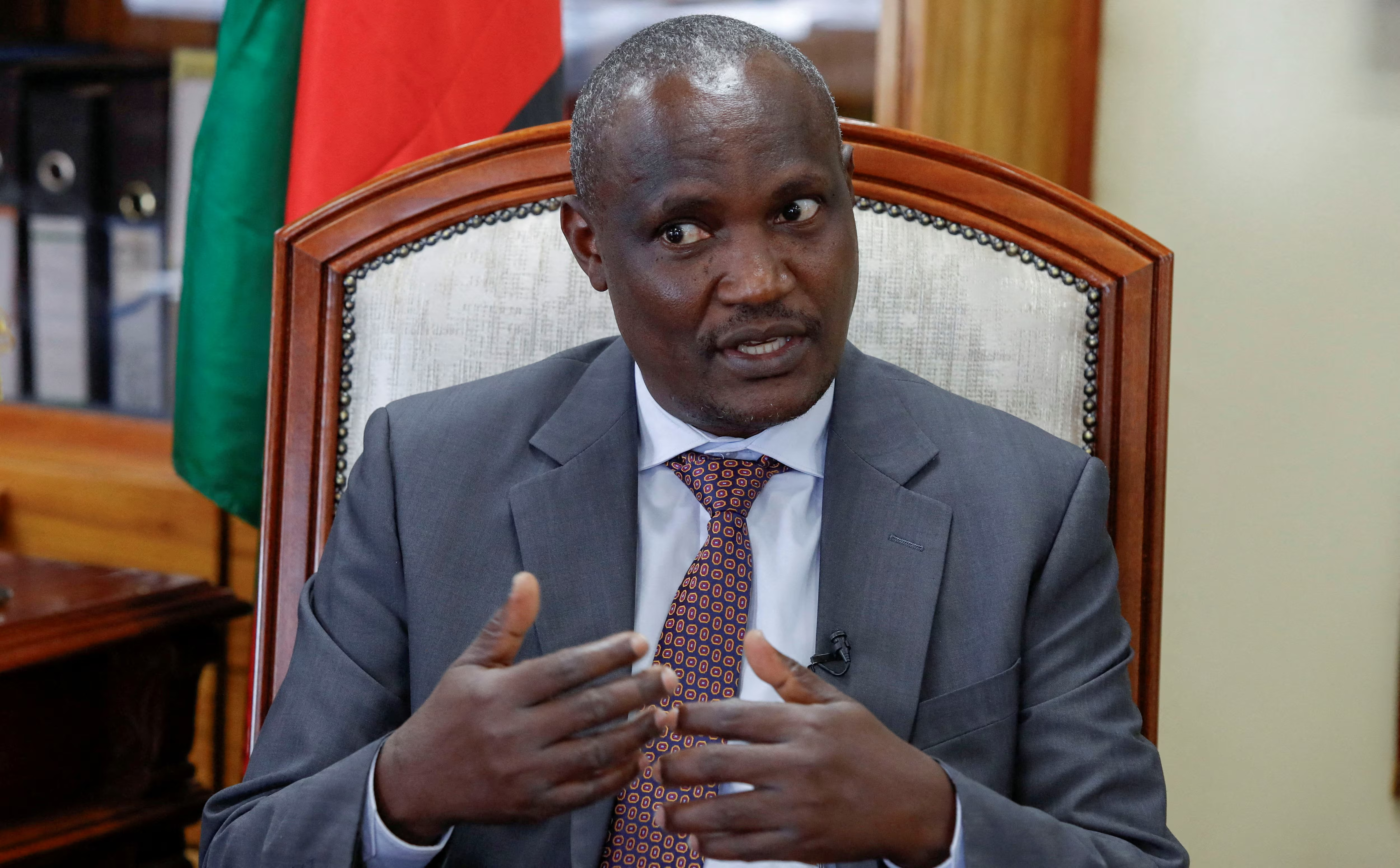
NAIROBI, May 7 (Reuters) – Kenya’s government will not impose new taxes or increase existing ones in this year’s budget proposals, the finance minister said, after deadly protests broke out last year against the government’s measures to raise revenue.
More than 50 people were killed when the youth-led marches broke out last June, forcing President William Ruto to abandon tax hikes worth 346 billion shillings ($2.68 billion), and causing a delay to funding from the International Monetary Fund.
“The finance bill doesn’t have to always adjust tax rates upwards,” John Mbadi, the finance minister, told a televised meeting late on Tuesday.
“The finance bill of this year is more on tax administration and trying to seal the loopholes and also make tax collection efficient.”
The government has sent a finance bill, which is usually the government’s vehicle for amending laws to maximise revenue collection, to parliament for passage, part of the process towards the 2025/26 (July-June) budget presentation next month.
It has also sent spending proposals that set the total expenditure at about 4 trillion shillings to parliament for debate and approval, including a budget deficit of 4.5% of GDP.
“There are no new major tax measures,” Mbadi said, adding that this year’s finance bill is targeting extra revenue of 25-30 billion shillings.
Critics have complained about a proposal in the tax bill that, if passed by parliament, will allow the tax authority to access financial information belonging to businesses and individuals, helping it to detect any tax evasion.
Mbadi defended the proposal, saying many wealthy people do not pay their fair share of taxes and hide behind the legal provision that bars authorities from accessing certain data.
“There are so many people out there operating big bank accounts and they cannot pay tax simply because they are protected by these kind of mischievous laws,” he said.
($1 = 128.9000 Kenyan shillings)
(Reporting by Duncan Miriri; Editing by George Obulutsa and Barbara Lewis)

